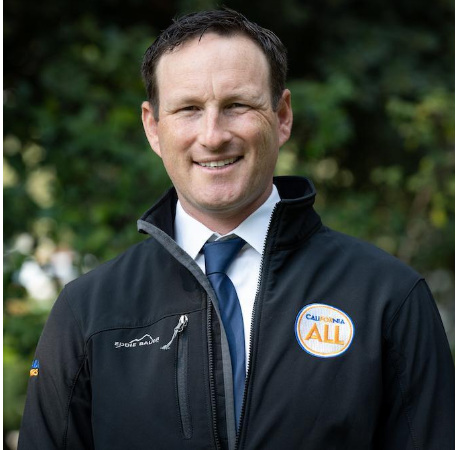
With Medi-Cal Update, More Californians Can Tap Into Behavioral Health Care
Edward Henderson | California Black Media
As the Department of Health Care Services (DHCS) continues to transform Medi-Cal, the state is expanding coverage to include behavioral health needs, like mental health care and substance use disorder services.
Medi-Cal, California’s Medicaid program, provides coverage for one in three — or 15 million — Californians. About 40% of California youth is also covered by the program.
Paula Wilhelm, Interim Deputy Director of Behavioral Health Services at DHCS recently spoke at a digital press conference hosted by Ethnic Media Services to discuss some of the expanded services.
“As a department, we know that mental health is just as important as physical health, and all of our health outcomes are intertwined,” Wilhelm said. “DHCS has been working hard to partner with our medical managed care plans and care providers to transform the way behavioral health services are delivered to Medi-Cal members.”
Some expanded services include prevention and wellness, screening and assessment, outpatient and community-based treatment, and group/family therapy. More intensive services are covered as well: crisis care, residential treatment, inpatient, mental health, and substance use medication.
Individuals dealing with postpartum depression, anxiety, and stress due to school or work, drug or alcohol addiction can also receive services.
“We want to improve the quality of care that we offer in Medi-Cal and create a more person-centered delivery system,” said Wilhelm. “Our overarching goal is to make it easier for Medi-Cal members to access behavioral healthcare and all the services they need to live healthier lives.”
Recent changes to the Behavioral Health Services Act, which voters approved as Proposition 1 in March, will reform behavioral healthcare funding and prioritize care for people with serious conditions. The new law also focuses on adding diversity to the behavioral healthcare workforce to promote equity. Culturally responsive services and a workforce that reflects the diverse communities served under the plan will be prioritized.
Wilhelm also mentioned the state’s “No Wrong Door Approach” to mental health care in her briefing. This initiative focuses on behavioral health payment reform that aligns payment models that reward quality. This allows more providers to get into the Medi-Care system and increases the diversity of providers to make patients feel seen.
Medi-Cal is also expanding services for children and youth in California. Gov. Newsom’s Children and Youth Behavioral Health Initiative is a $4 billion investment into strengthening existing mental health services.
Autumn Boylan, Deputy Director of the Office of Strategic Partnerships for DHCS also spoke at the digital conference. She focused on the expansion of services to meet the growing mental health needs of youth.
“Half of all lifetime cases of diagnosable mental illnesses emerge for our young people by the age of 14 and 75% of diagnosable mental illnesses begin by the age of 24.” Said Boylan. “Focusing on children and youth from ages 0-25 is critically important to ensure that we are providing preventative services and intervening early when symptoms of mental health/substance abuse conditions begin to emerge as our young people are developing.”
In California, almost 300,000 youth are coping with major depression and 66% of those young people do not get treatment access in the way they should.
To combat this, the act focuses on strengthening the network of support for youth through county offices of education, and school districts throughout the state to increase care at school settings. Funding will bring more school counselors, psychologists, well-being and mindfulness programs, social and emotional learning, and support.
Community-based services known to benefit and achieve better outcomes for young people of color will also be prioritized.
Two free mental health apps have been created to increase mental health access for youth and their parents in California despite their coverage status.
The BrightLife Kids App (0-12), and Soluna App (13-25) provide free mental health support.
If you or a loved one could benefit from Medi-Cal’s services, you can access the DHS 24-hour access line to get connected to care.





